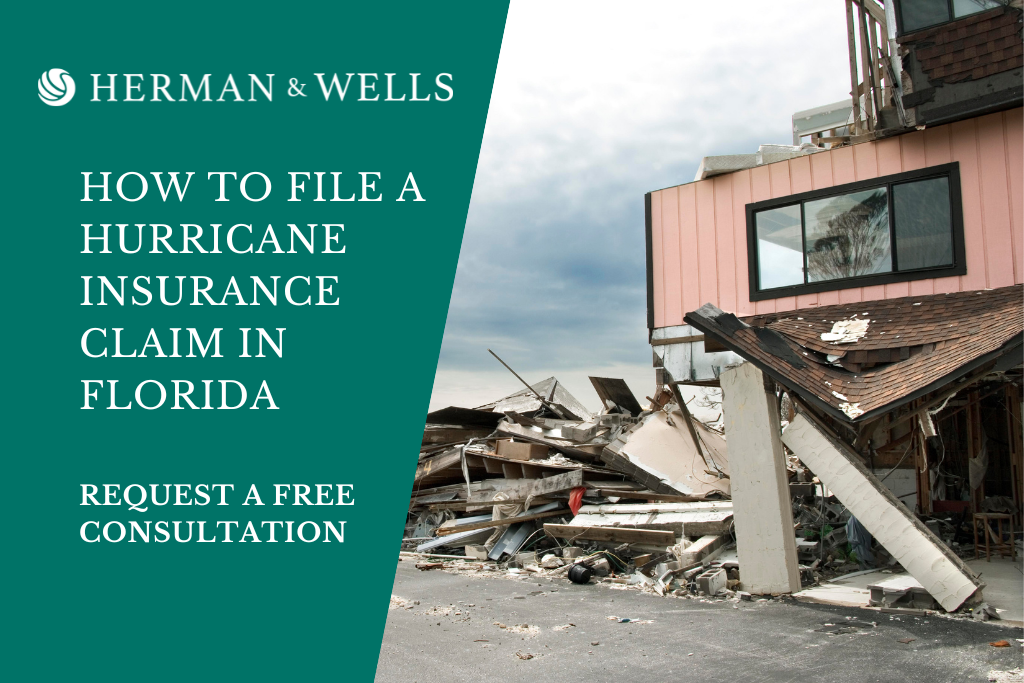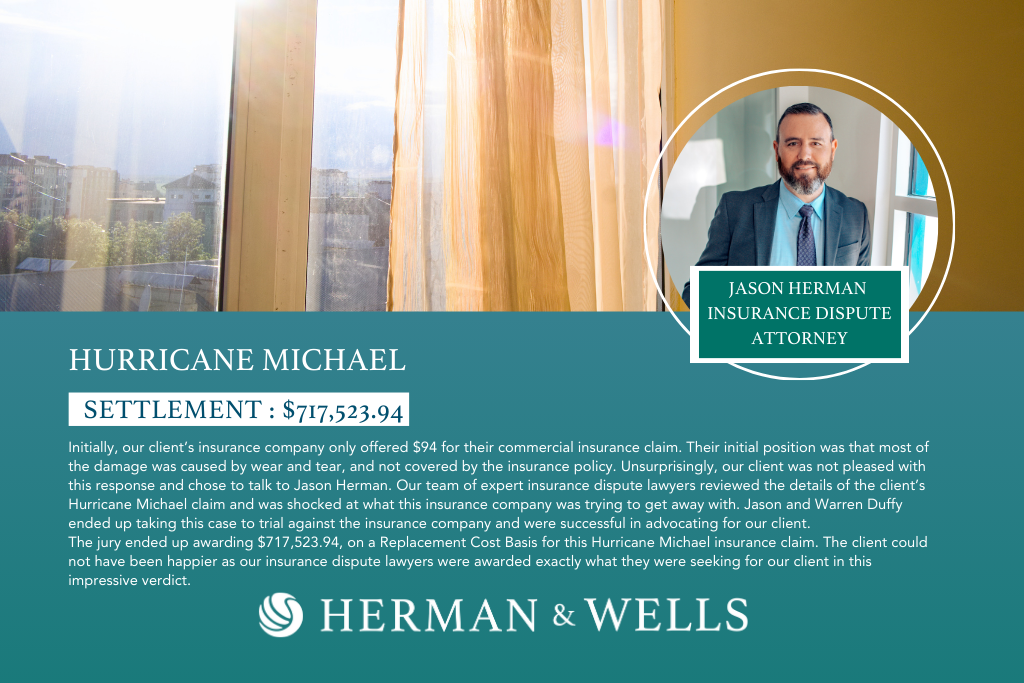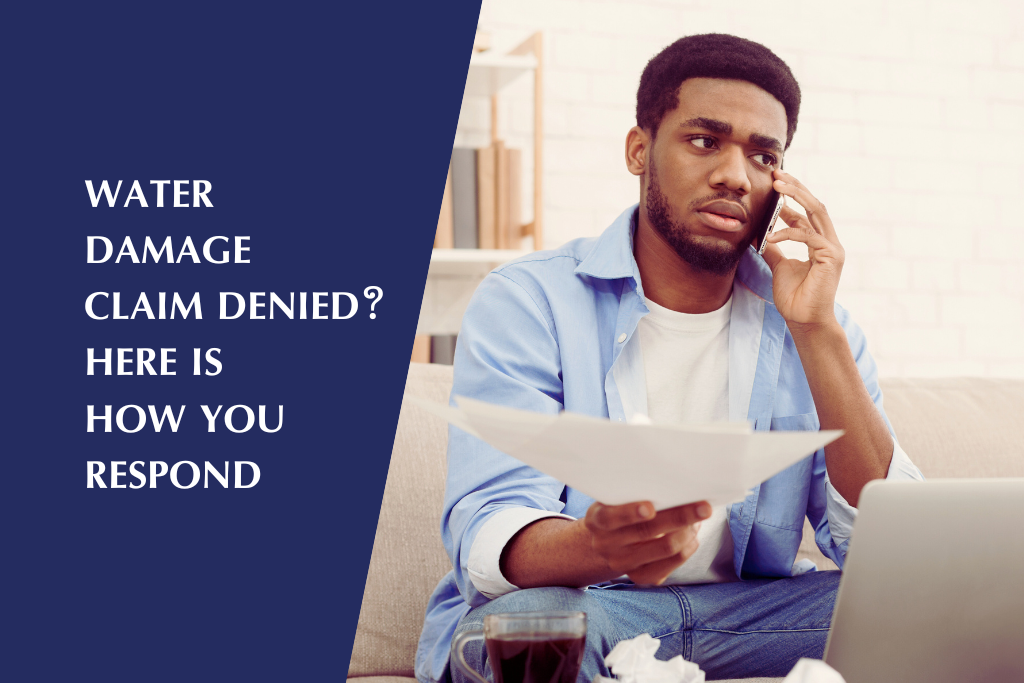If your home was damaged or destroyed by Hurricane Ian, it is important that you file your insurance claim as soon as possible. The sooner you file, the less likely you are to run into problems with your insurance company. The upcoming months are going to be very hectic for insurance companies and adjusters. They will be inundated with claims from homeowners all over Florida.
If you wait to file your claim, you run the risk of getting lost in the shuffle and not having your claim processed in a timely manner.
If your insurance company has wrongfully denied or underpaid your hurricane insurance claim, call (727) 821-3195 to speak with one of our insurance dispute attorneys. We can review your claim and provide a second opinion. If our attorney determines that your insurance company has made the wrong decision, we will be ready to advocate for your rights.

The Cliff Notes: Key Takeaways From This Post
- 1Gather key insurance information, such as policy number, address of damage, and phone number. Locate the declarations page to confirm hurricane deductible amounts.
- 2Assess the damage yourself or enlist a contractor, roofer, or public adjuster to assess minor damage and decide if a claim should be filed.
- 3Provide brief and accurate details when filing a hurricane insurance claim, understand that calls may be recorded, and expect to be handed off to an adjuster who will conduct an inspection.
- 4Understand important timelines: 14 days for acknowledgement of claim in writing; 30 days response window for Sworn Statement in Proof of Loss; 90 days final decision/payment deadline from initial claim filing.
- 5Document all relevant details related to Florida hurricane insurance claim and consider engaging with legal help if necessary.
1) Gather Key Insurance Information
Ideally, it is important to know what kind of coverage you have and what your policy deductible is before a hurricane hits. This way, you can be better prepared financially in the event that your home sustains damage from the storm. If you didn’t know beforehand, you can find out who your insurance company is by reviewing your policy documents, asking an insurance agent, or calling your mortgage company.
Once you have this information, locate a copy of your current declarations page. This will list your hurricane deductible amount, which is usually a percentage of your main building coverage. For example, if you have a 2% hurricane deductible on a $400,000 Coverage A-Dwelling policy, your deductible would be $8,000.
Once the storm has passed, take a walk around your property to assess the damage. If possible, take photos or videos of any damage to your home, as well as any downed trees or other debris. This documentation will be important when you file your insurance claim.
2) Decide If You Should Make A Claim
After a hurricane, you will need to decide whether or not to file an insurance claim. For major damage, it is always best to report it as soon as possible. However, for damage that seems minor in comparison to your hurricane deductible, you may want to get it checked out by a contractor, roofer, or public adjuster before making a claim. This is because sometimes what seems like a minor issue could actually be a sign of a much bigger problem.
For example, a small leak from inside the house could be indicative of damage that requires a full roof replacement. Or, there might be multiple leaks that have come through the roof. In these cases, it is definitely worth it to file an insurance claim. On the other hand, if the damage seems like it can be easily and affordably repaired, you may want to pay for the repairs yourself and avoid making a claim.
According to most insurance policies, customers are required to report their claim within a timely manner and provide the damaged property as evidence. If there is any sort of delay in doing so and it puts the investigating process at risk for the insurance company, then chances are high that your claim will be denied.
Even though it’s always best to report sooner rather than later, sometimes a short wait period is understandable — especially if repairs have not been made yet or if the damage isn’t visible. Your insurance company needs concrete proof in order to change before anything can happen.
If you’re unsure of what to do, it’s always best to contact your insurance company and ask for their opinion on the damage. They may even be able to send an adjuster to assess the situation before you have to make a decision.
Lastly, keep in mind that Florida law requires that all hurricane insurance claims be filed within two years of the date of damage.
3) Get The Details To Report The Claim
To report a Florida hurricane insurance claim, you will need the following:
- Your policy number
- The address of the damaged property
- Your phone number
- A brief description of the damages sustained.
If you do not have your policy number available, your insurance company can find it using your address. Be ready to provide them with a detailed description of the damages. For example: “My roof is leaking,” “A tree fell on my house,” or “I have roof damage and leaks inside.”
4) File Your Hurricane Insurance Claim ASAP
If you have hurricane insurance, you will need to report your claim to your insurance company as soon as possible after the storm. The first step is to contact your insurance company or agent and let them know that you have damage and need to file a claim. Your insurance company will have a phone number for you to call to report your claim.
If you can, it’s best to report your claim online. This way, you will have a record of everything that was said and done. Your insurance agent can help you report a claim, but it’s better to go directly to your actual insurance company.
When you report your claim, the insurance company will assign an adjuster to work on your case. The adjuster will contact you to set up a time to come and inspect the damage.
5) Provide Brief, Accurate Information
If you’re filing a hurricane insurance claim in Florida, there are a few key things to keep in mind. First and foremost, be brief and accurate when providing information about the damage. It’s important to answer any follow-up questions as well, without guessing at answers. If you haven’t been able to assess the damage yourself, simply say so. Filing a hurricane insurance claim in Florida doesn’t have to be a daunting task. By following these simple tips, you can ensure that the process goes as smoothly as possible.
6) You’re Probably Being Recorded
If you’re calling your insurance company to file a claim, it’s very likely that they are recording the call. They may use the recording against you, so it’s important to be polite, accurate, and brief.
7) Expect To Be Handed Off To An Adjuster
The person taking your first notice of loss will put your claim in the system and that’s probably it. You’ll get a call from an adjuster within a day or two of reporting your claim. The adjuster will do the inspection, start gathering information from you, and possibly conduct a recorded statement of you.
This is the professional who will be handling your claim from start to finish, so it’s important that you build a good rapport with this person. Be cooperative, but also be sure to ask any questions you have about the process. And if you don’t like the way your claim is being handled, don’t hesitate to ask to speak to a supervisor.
Recording a statement may seem daunting, but it’s really just the insurance company’s way of getting your side of the story on record. The adjuster will likely ask you questions about how the hurricane damage occurred, what type of repairs are needed, and how much it will cost to fix everything. Just be honest and give the best estimate you can. The adjuster will also ask for your contact information and permission to reach out to your contractor or repairman. Be sure to share photos and videos of the damage with the adjuster – if requested.
8) Important Hurricane Insurance Claim Timelines
After a hurricane, you may need to file an insurance claim for damage to your home or property. Here are some important timelines to keep in mind:
- The insurance company has 14 days to acknowledge your claim in writing. This notice should include your claim number and the contact information for your adjuster. You’ll also get a Homeowners Claims Bill of Rights.
- 14 days is the longest an adjuster can take to reply to any communication from you about your claim.
- You have 30 days to respond to a request for a Sworn Statement in Proof of Loss (but your policy may provide more or less time). A “proof of loss” despite its name, is not really “proof” of the claim. It’s a form that says how much money a policyholder is seeking.
- The insurance company has 90 days after you make your claim to make its final decision and issue a payment or deny payment. If the company needs more time, it must notify you in writing within this 90-day period and explain why additional time is needed.
Keep these timelines in mind as you navigate the claims process after a hurricane. If you have any questions about your policy or the claims process, you should contact your insurance company or agent.
9) Keep Notes On Anything Related To Your Hurricane Insurance Claim
No matter if it’s on paper, your phone, or your computer, you should write down key details related to your Florida hurricane insurance claim. This includes putting in your claim notice, the date the adjuster came out, and anything important that was said during that time.
The insurance company should have a record of all of this information, but you want to be proactive and have your own documentation just in case. Having your own account of these events will be helpful if you need to dispute anything with the insurance company.
Book a Free Claim Review With Our Insurance Dispute Lawyers in Florida
Homeowners in Florida who have been affected by Hurricane Ian should file their insurance claims as soon as possible. Our insurance dispute lawyers can help you if your insurance company tries to wrongfully deny or underpay your claim.
Book a free claim review with the insurance dispute lawyers of Herman & Wells today. Call (727) 821-3195 today for a free consultation.






